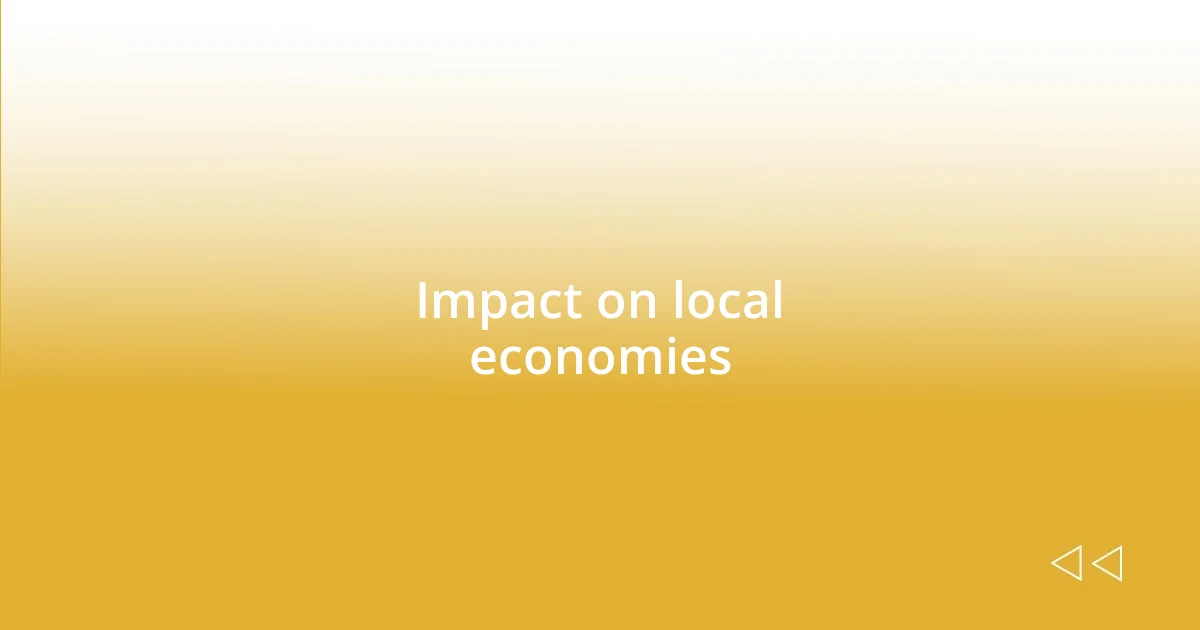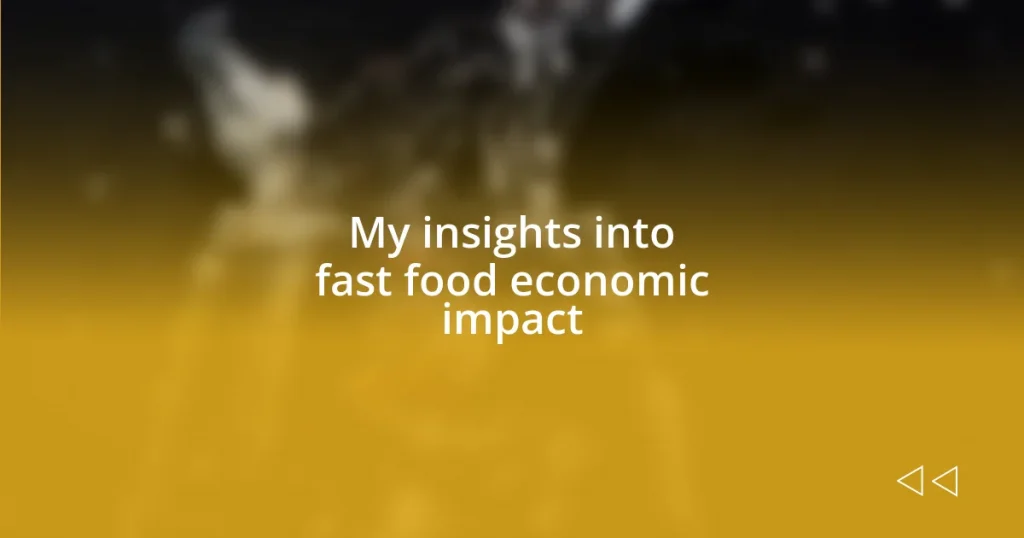Key takeaways:
- Fast food economics reflects consumer behavior and market dynamics, influencing customer choices through pricing strategies.
- Fast-food chains stimulate local economies by creating jobs and generating tax revenue, which can improve community services.
- Despite the benefits, many fast-food jobs come with low wages and limited benefits, highlighting the need for better working conditions.

Understanding fast food economics
Fast food economics is a fascinating field that intertwines consumer behavior with market dynamics. I remember my first job at a fast-food restaurant; it opened my eyes to how pricing strategies affect customer choices. How often do we pick a combo meal because it seems more economical, even when we might not be that hungry?
The sheer convenience and low prices offered by fast-food chains create a unique economic model. I often find myself pondering how these businesses thrive in a competitive market while still managing to cater to our cravings. It’s incredible how a simple burger can stimulate local economies through job creation, yet at the same time, it raises questions about the long-term implications for public health and sustainability.
Additionally, the globalization of fast food has introduced an array of economic impacts not just domestically but worldwide. Reflecting on my travels, I’ve noted how these chains adapt their menus to fit local tastes, showcasing a blend of cultural influence and economic strategy. Isn’t it interesting how something as simple as fries can spark a dialogue about local versus global economic strategies?

Impact on local economies
The presence of fast-food establishments often acts as a catalyst for local economic development. I remember a quaint town that saw a familiar chain open its doors; almost immediately, new jobs were created and local suppliers had a chance to thrive. How many times have you noticed a bustling community after a popular fast-food branch arrives?
These restaurants also generate tax revenue for municipalities, which can be reinvested into community services. I think back to my hometown, where the local park was revitalized using funds from fast-food taxes. Isn’t it remarkable to see how a quick meal can contribute to enhancing public spaces?
However, this impact isn’t always straightforward. While fast food can provide job opportunities, many positions come with low wages and limited benefits. I’ve met several former employees who felt stuck in these roles, facing challenges in pursuing their dreams. How can we balance the economic gains with the need for better working conditions? It’s a complex question, one that warrants ongoing discussion.















